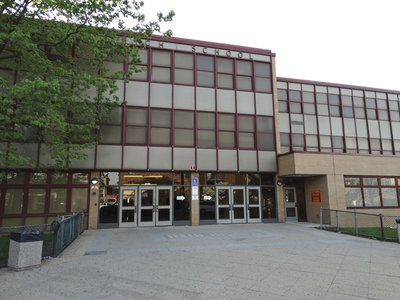One of the items on North Bergen Superintendent of Schools George Solter’s wish list is an additional teaching facility in North Bergen to alleviate overcrowding in the existing schools—a trend that is not likely to reverse any time soon.
In fact, this year, enrollment began at 7,294 students on the first day for pre-kindergarten through 12th grade. As of last week, the number was 8,046 students.
The projection for next year, provided by an outside contractor, is for 130 more students entering the school system.
“The year after that is about another 100,” said Dr. Solter. “The year after that another 100 more. The year after that another 100 more.”
Solter talked about the situation last week as the school board and town met to find ways to cut the $44.4 million school budget.
The tax portion of the budget was rejected by voters on April 23, meaning that both entities must now find places to cut.
School officials say North Bergen one of the most underfunded districts in the state. Several neighboring districts get extra state aid because they have a low-income population, but North Bergen doesn’t qualify.
“The main thing is to not let the quality of education be the recipient of the cuts.” –Dr. George Solter
____________
This year, school administrators had requested a 7.8 percent increase. Recently representatives from the school and the town met to discuss how to proceed post-election, and negotiated a school budget for the year that reflects an increase of just over 3 percent.
This brings the annual school budget to about $44.4 million, up from $43.1 million last year.
Negotiated increase
“We created our wish list for the district next year and that resulted in a 7 percent to 8 percent increase,” Solter said last week. “It got voted down so we had a meeting with the Town Council. They readjust the rate of increase and the state department signs off on it.”
“We have to cut out about 4 percent to 5 percent” from the proposed budget, he said. “What we’re doing now is looking at the areas where we can cut. We’re really putting everything on the table. The main thing is to not let the quality of education be the recipient of the cuts.”
One way they’re doing that is by doubling up on certain duties. “Some people have two or three jobs,” he explained. “For example, one of our elementary school principals is also our director of curriculum. We don’t have a [full time] director of curriculum. We pay a stipend rather than a full salary, at a reduced cost.”
Another way to decrease the budget is by negotiating with vendors whenever possible to decrease pricing. However, the school has no choice but to purchase computer equipment to comply with new state testing regulations.
While New Jersey mandates that schools must quickly upgrade their technology and infrastructure to meet the new PARCC (Partnership for Assessment of Readiness for College and Careers) testing requirements, as well as comprehensive new teacher evaluation models, no increase in funding has come from the state. In fact, the trend is the opposite.
“It seems like every year the state [funding] comes down a little bit or stays flat,” said Dr. Solter. “But everything costs more so you’re falling behind. The federal grants that we get for at-risk, ESL, and students with disabilities, that tends to drop every year from the federal government. So now all of a sudden the district has to incur more costs.”
North Bergen’s school district is one of the most underfunded by state aid in New Jersey, according to the Education Law Center. Last year the district received $24 million less than what it is entitled to receive under the School Funding Reform Act formula.
Looking forward
Despite all the challenges, North Bergen High School was recently awarded a bronze medal by U.S. News and World Report magazine, recognizing it as one of New Jersey’s best public high schools. The evaluation rankings consider test scores, student demographics, college readiness, faculty-student ratio, and more. The bronze medal award is attributable to the district’s intense focus on reading skills, dedicated faculty, and talented students, according to Dr. Solter.
Summarizing plans for the future, he said, “You have to make sound economic decisions. You can’t just jump at the first thing. You have to do your due diligence, you have to do your homework. What we’re trying to do is make sure we’re consistent with services and deliver a quality education.”
Art Schwartz may be reached at arts@hudsonreporter.com.
